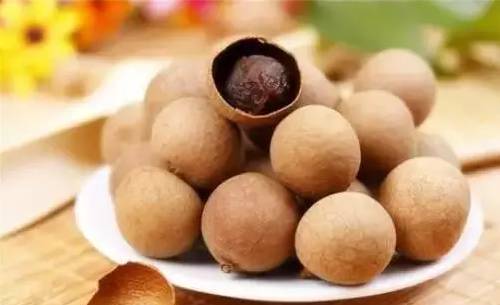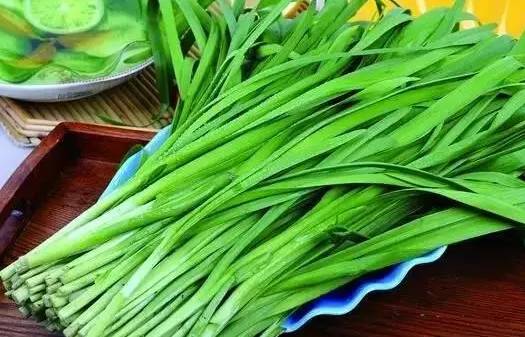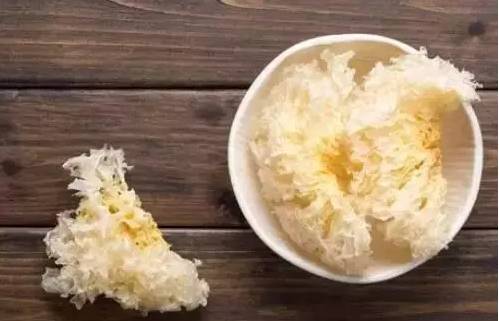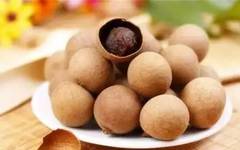The main organs in our body are the heart, liver, spleen, lungs, and kidneys. As long as we take good care of them, our health will thrive! So, what foods should we eat to nourish these five organs? Read on to find out!
Foods for Nourishing the Heart
1. Longan (Gui Yuan)

Longan flesh can be brewed in tea or cooked in porridge. It benefits the heart and spleen, replenishes qi and blood, and calms the spirit, especially suitable for those with heart palpitations due to insufficient heart blood.
2. Red Dates (Hong Zao)
Red dates are rich in essential nutrients for blood production—iron and phosphorus—making them a natural blood tonic. They are particularly suitable for various types of anemia, weakness, postpartum fatigue, and heart palpitations caused by insufficient qi and blood. They can be boiled in water, cooked in porridge, or chewed on an empty stomach in the morning and evening.
3. Kumquat (Jin Ju)
Kumquat is warm in nature and has a sweet and spicy flavor, with effects of regulating qi, relieving depression, and resolving phlegm. It is particularly suitable for heart palpitations caused by phlegm obstructing the heart vessels and qi stagnation with blood stasis, including those caused by hypertension, arteriosclerosis, hyperthyroidism, coronary heart disease, or arrhythmia. It can be made into a decoction or brewed as tea.
4. Grapes (Pu Tao)
Grapes are neutral in nature and sweet in flavor, with the ability to replenish qi and blood. They nourish and strengthen, promote blood production, and have diuretic properties. They are effective for blood deficiency and heart palpitations. Due to their rich content of glucose, organic acids, amino acids, and vitamins, grapes benefit and stimulate the brain’s nerves. Raisins, being high in sugar and iron, also have a blood-replenishing effect for those who are weak and anemic.
Therefore, for those with heart palpitations due to insufficient heart qi and blood, as well as those with neurasthenia and anemia, regular consumption of grapes is particularly beneficial.
5. Black Fungus (Hei Mu Er)
Black fungus is neutral in nature and sweet in flavor, with effects of nourishing yin, benefiting the stomach, invigorating blood, and moistening dryness. It can replenish qi and invigorate blood. Black fungus is a natural anticoagulant, preventing and treating arteriosclerosis, coronary heart disease, hypertension, and hyperlipidemia. Those with heart palpitations due to cardiovascular diseases should consume it regularly for significant benefits.
Foods for Nourishing the Liver
1. Leeks (Jiu Cai)

Traditional Chinese Medicine (TCM) believes that eating leeks in spring can help dispel cold and nourish yang, greatly benefiting liver health. Leeks themselves have a yang-boosting effect, but TCM also holds that leeks in autumn contain higher protein levels, so those with gout should avoid them.
Additionally, leeks may interact with certain medications, so it is advisable to consult a healthcare provider if you are on medication.
2. Mung Beans (Lv Dou)
Mung beans are well-known for their ability to clear heat and detoxify, as well as to relieve summer heat and reduce water retention. They are rich in lysine and amino acids, and when combined with rock sugar, they have significant therapeutic value, especially in preventing heat caused by excessive liver fire.
3. Soybeans (Da Dou)
Soybeans are rich in phytoestrogens and trace elements such as calcium, iron, and phosphorus, which greatly aid in the regeneration of the liver and the repair of damaged liver cells.
4. Animal Liver (Dong Wu Gan)
From the perspective of ‘like nourishes like’, animal liver can protect the liver due to its rich nutritional content, including protein, folic acid, vitamin B12, and iron.
5. Tomatoes (Xi Hong Shi)
Tomatoes have heat-clearing and detoxifying properties, and for liver disease patients, they can supplement nutrients and reduce toxins’ damage to liver cells, effectively protecting the liver.
6. Mushrooms (Mo Gu)
Mushrooms are the queens of fungi, rich in nutrients, and consuming them in autumn is particularly beneficial for nourishing the liver.
Foods for Nourishing the Spleen
1. Glutinous Rice (Nuomi)

Glutinous rice is warm in nature and sweet in flavor, with the ability to tonify the spleen and benefit qi. It is suitable for those with spleen deficiency to consume as porridge.
2. Sweet Potatoes (Hong Shu)
Commonly known as yam, sweet potatoes are neutral in nature and sweet in flavor, with the ability to tonify the spleen and blood, benefit qi, and promote bowel movements.
3. Japonica Rice (Jing Mi)
Japonica rice is neutral in nature and sweet in flavor, with the ability to tonify the spleen and benefit qi.
4. Job’s Tears (Yi Ren)
Commonly known as coix seed, Job’s tears can tonify the spleen and strengthen the stomach. Those with spleen deficiency should consume Job’s tears with Japonica rice to enhance their effects.
Foods for Nourishing the Lungs
1. Tremella (Yin Er)

Tremella can be used in dishes or stewed, for example, with lily or cherries and rock sugar to make a soup. It moistens the lungs, resolves phlegm, nourishes yin, and generates fluids, effective for treating lung dryness, dry throat, and thirst.
2. Radish (Luobo)
Raw radish can treat thirst due to heat illness and lung heat cough; when juiced with sugarcane, pear, and lotus root, the effect is even better. It has heat-clearing, phlegm-resolving, fluid-generating, and digestive benefits.
3. Persimmons (Shi Zi)
Fresh persimmons can improve cough with phlegm, and for those with deficiency, ripe persimmons can treat heat illness, thirst, dry mouth, and heart heat. Persimmons have lung-moistening, cough-relieving, heat-clearing, fluid-generating, and phlegm-softening properties, especially suitable for winter consumption.
4. Lily (Bai He)
Cooked or brewed, lily is effective for treating chronic cough, dry cough, and throat pain associated with respiratory diseases and various autumn dryness conditions.
Foods for Nourishing the Kidneys
1. Chestnuts (Li Zi)

Chestnuts are warm in nature and sweet in flavor, not only tonifying the spleen and benefiting the stomach but also nourishing the kidneys and strengthening the waist, making them particularly suitable for those with kidney deficiency and lower back pain.
2. Chinese Yam (Shan Yao)
Chinese yam is sweet and is considered a top-grade medicine in TCM. It not only tonifies the lungs and strengthens the spleen but also benefits the kidneys and replenishes essence. Those with kidney deficiency should consume it regularly.
3. Goji Berries (Gou Qi Zi)
Goji berries are neutral in nature and sweet in flavor, with functions of nourishing the kidneys, benefiting the liver, enhancing vision, strengthening bones, alleviating lower back pain, and promoting longevity. They are especially suitable for middle-aged women with kidney deficiency.
4. Black Sesame (Hei Zhi Ma)
Black sesame is neutral in nature and sweet in flavor, with the ability to nourish the liver and kidneys, moisten the five organs, and is beneficial for dizziness, white hair, hair loss, lower back soreness, constipation due to insufficient liver and kidney essence and blood.
5. Black Beans (Hei Dou)
Black beans are praised by ancient people as the ‘grain of the kidneys’, sweet and neutral in nature, not only resembling the shape of the kidneys but also having functions of tonifying the kidneys, invigorating blood, promoting diuresis, detoxifying, and moisturizing the skin, making them particularly suitable for kidney deficiency patients.
6. Black Rice (Hei Mi)
Black rice has effects of nourishing yin, tonifying the kidneys, strengthening the spleen, warming the liver, benefiting the spleen and stomach, invigorating blood, and enhancing vision. It is beneficial for preventing and treating dizziness, anemia, lower back soreness, lung dryness cough, kidney deficiency edema, and spleen and stomach weakness.



